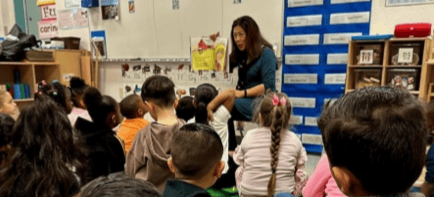How Do I Find…
From NDE
- 7/26/2024 - Nevada Department of Education and City of Las Vegas Host 2 Regional Conferences
- 7/16/2024 - Nevada Department of Education and UNR Offer Summer Literacy Institute
- 6/14/2024 - Two Nevada Teachers Named State Finalists for PAEMST Award
- 6/7/2024 - Nevada Pathways Partners with Pathful to Highlight Careers
- 6/3/2024 - Nevada Department of Education Announces Henderson and North Las Vegas as Charter School Authorizers
- 5/9/2024 - State Board of Education Invites Applicants for Charter Authority Board
Inside NDE

Mission Statement
Our mission is to improve student achievement and educator effectiveness by ensuring opportunities, facilitating learning, and promoting excellence.

Celebrating & Supporting Current and Future Educators
The mission of the Nevada Teacher of the Year program is to celebrate excellence and strengthen the teaching force by honoring and recognizing exceptional teachers on a school, district, state, and national level.

Transparency & Reliability
Districts, schools, and communities are served through efficient and effective use of public funds and fulfillment of statutory responsibilities.


























